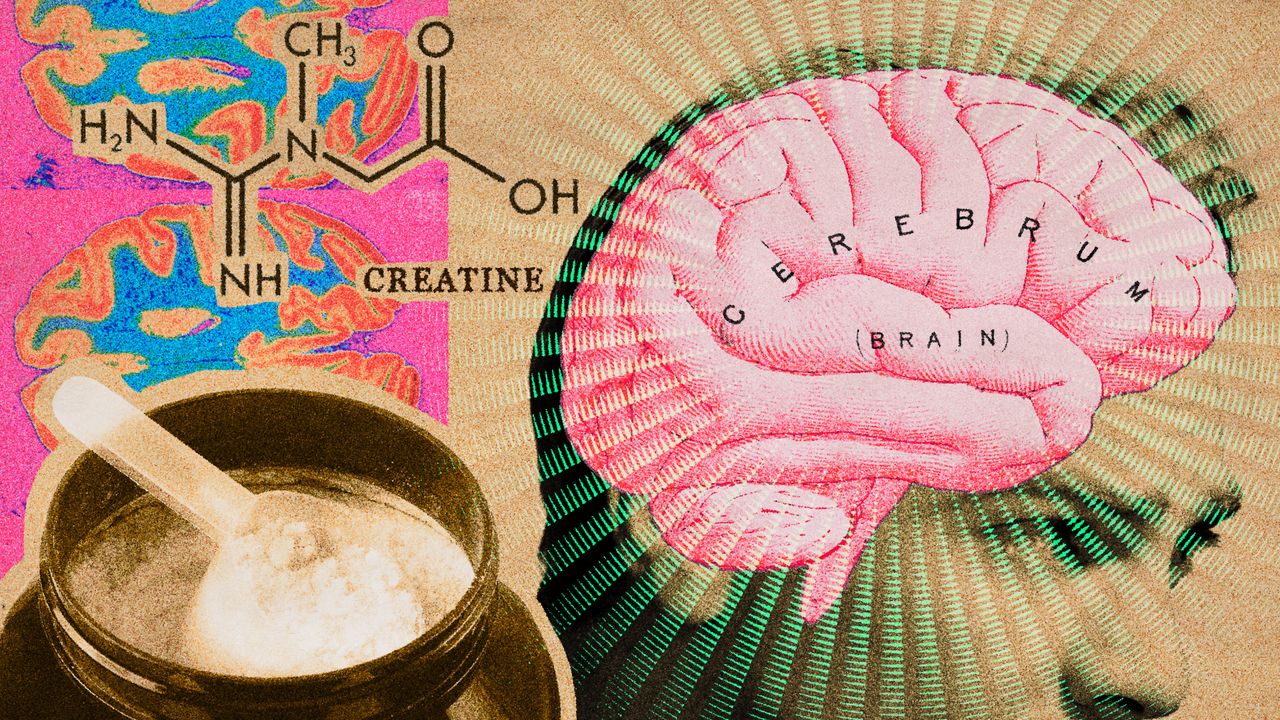Put another way, the science shows us that creatine’s ability to benefit your brain is at its best when you’re, well, not at yours.
“Brain levels appear tightly regulated and may rise only modestly with supplementation, unless the brain is energy-stressed or baseline creatine is low,” i.e., if you’re sleep-deprived, stressed out, or not getting enough creatine through your diet, says Zishan Khan, MD, board-certified psychiatrist with Mindpath Health, who notes that creatine has shown “mixed or null effects on broader executive functions in healthy, rested adults.”
That being said, creatine’s potential to pick up the slack when your brain is tired or stressed (or a bit of both) is well worth the hype the supplement has recently been receiving on social media for its purported ability to reverse up to 21 hours of sleep deprivation.
“That 21-hour sleep deprivation example isn’t just anecdotal,” says Luke Barr, MD, board-certified neurologist and director of neurology at Deaconess Health System, who points out that peer-reviewed research, like this 2024 trial published in the journal Nature, has found creatine to be especially adept at blunting the negative effects of fatigue, stress, and other forms of cognitive impairment.
“Among the studied outcomes, processing speed and working memory under cognitive stress are the most replicated,” says Dr. Barr—citing research including a 2018 meta-analysis published in the journal Experimental Gerontology, which found creatine to significantly improve short-term memory and reasoning, and, more recently, a 2024 study review by researchers at Guizhou Normal University in China that identified modest but consistent improvements in processing speed and focus. “Each of these studies helps validate creatine’s role as a nootropic in cognitively stressed brains,” he says.
Meanwhile, researchers continue to surface new brain health benefits, like this promising 2023 review published in the journal Sports Medicine that uncovered creatine’s potential to mitigate the effects of depression, anxiety, and even traumatic brain injuries such as concussion.
How much creatine do you need to take in order to reap these brain-boosting benefits?
While a daily dose of five grams has been well established as the ideal for improving muscular strength and size, the precise serving of creatine required to capitalize on the mental benefits is yet to be determined, although it’s likely considerably higher. “This is because the creatine must pass through the blood-brain barrier,” which presents a tougher hurdle than skeletal muscle tissue, says Leigh Erin Connealy, MD, medical director at the Center for New Medicine.
